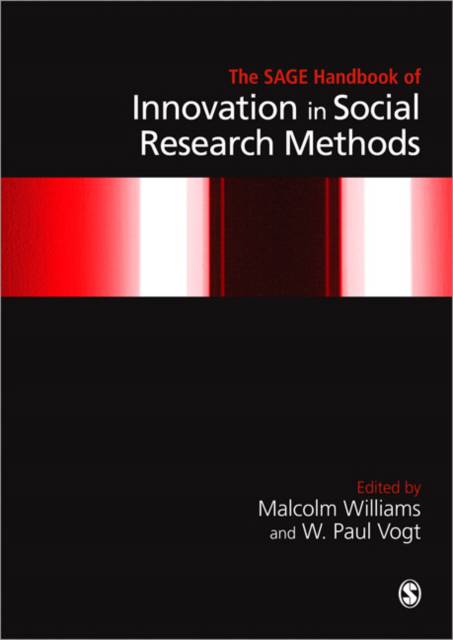
Bedankt voor het vertrouwen het afgelopen jaar! Om jou te bedanken bieden we GRATIS verzending (in België) aan op alles gedurende de hele maand januari.
- Afhalen na 1 uur in een winkel met voorraad
- In januari gratis thuislevering in België
- Ruim aanbod met 7 miljoen producten
Bedankt voor het vertrouwen het afgelopen jaar! Om jou te bedanken bieden we GRATIS verzending (in België) aan op alles gedurende de hele maand januari.
- Afhalen na 1 uur in een winkel met voorraad
- In januari gratis thuislevering in België
- Ruim aanbod met 7 miljoen producten
Zoeken
Omschrijving
Social research is a bourgeoning field. Of course it has many traditions and approaches, but there is a high premium upon thinking differently and thinking anew because social life is never static or wholly predictable. The Handbook, edited by internationally recognized scholars, provides a comprehensive, pitch-perfect critical assessment of the field. The main features of the Handbook are: Clear organization into 4 parts dealing with The Social Context of Research; Design and Data Collection; Integrating The Analysis of New Data Types; Sampling, Inference and Measurement Clear, cutting edge chapters on Objectivity; Causation; Organizing Social Research; Correspondence Analysis; Grounded Theory; Conversational Surveys; Mixed Methods; Meta-Analysis; Optimal Matching Analysis; GIS Analysis; Quantitative Narrative Analysis; Longitudinal Studies; SEM; MLM; Qualitative Comparative Analysis; Respondent Driven Sampling Brings together a glittering assembly of the key figures working in the field of research methods Demonstrates the continuities and productive tensions between classical traditions and real world research. The result is a superbly organized text which will be required reading for anyone interested in the routes and future of social research. It is an unparalleled teaching resource and a 'must have' for serious social researchers.
Specificaties
Betrokkenen
- Auteur(s):
- Uitgeverij:
Inhoud
- Aantal bladzijden:
- 664
- Taal:
- Engels
- Reeks:
Eigenschappen
- Productcode (EAN):
- 9781446295830
- Verschijningsdatum:
- 30/05/2014
- Uitvoering:
- Paperback
- Formaat:
- Trade paperback (VS)
- Afmetingen:
- 176 mm x 247 mm
- Gewicht:
- 1152 g

Alleen bij Standaard Boekhandel
+ 186 punten op je klantenkaart van Standaard Boekhandel
Beoordelingen
We publiceren alleen reviews die voldoen aan de voorwaarden voor reviews. Bekijk onze voorwaarden voor reviews.









